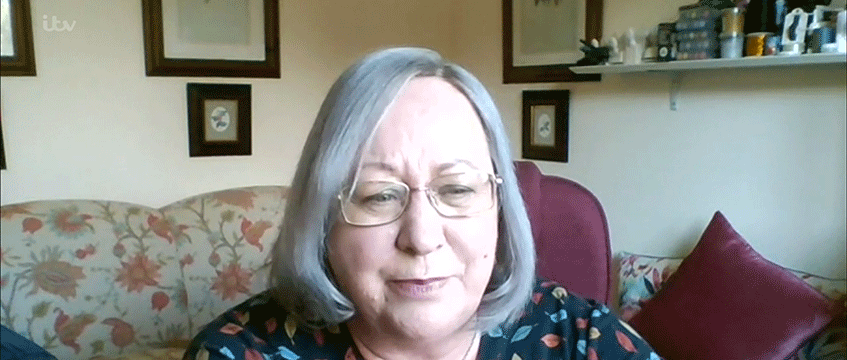Jackie Weaver’s infamous online council meeting immediately springs to mind when we hear the words “virtual committee meeting”. While cringingly entertaining for many, on a serious note, it demonstrated some of the issues surrounding local decision-making and shone a spotlight on unprofessional and disrespectful behaviour among a few members. Would they have behaved like that at an in-person meeting? It’s hard to say, but hopefully not in the future.
The pros and cons of virtual council meetings have been a hot topic lately, ultimately culminating in Hertfordshire County Council and others v Secretary of State for Housing, Communities and Local Government [2021] EWHC 1093 (Admin) last month. The case was brought in anticipation of the expiry of the right to hold virtual council meetings, which occurred on 6 May 2021. The claimants had previously written to the secretary of state Robert Jenrick, asking him to extend the right beyond 7 May 2021, but he explained that the pressures on the parliamentary timetable meant that this would not be possible.
What did the law temporarily allow?
The Local Authorities and Police and Crime Panels (Coronavirus) (Flexibility of Local Authority and Police and Crime Panel Meetings) (England and Wales) Regulations 2020 allowed remote access to council meetings by members, the press and the public. It also allowed councils to change the frequency and occurrence of meetings without further notice.
What was the court case about?
The claimants asked for a declaration from the High Court that existing legislation (Schedule 12 of the Local Government Act 1972) already granted legal status to virtual meetings, meaning that virtual meetings could continue beyond the 6 May 2021 deadline.
They argued that there was a compelling case for allowing the continuation of virtual meetings, pointing to advantages such as increased democratic participation; protecting vulnerable participants; and time, cost and efficiency savings. In June last year, Lawyers in Local Government (one of the claimants) surveyed its members on remote meetings and found that 88% were in favour.
Why didn’t the government just extend the deadline?
The government’s view was that an extension required new primary legislation and, with everything else going on in Westminster at the moment, there simply wasn’t space in the legislative programme to do so.
Later on however, Jenrick stepped in and announced that the government would back the claimants’ challenge.
In a statement, he said: “We recognise remote or virtual meetings by councils have widened access to local democracy and we will be keen to lock in the good work councils have undertaken during the pandemic to embrace technology. However, appropriate safeguards must be in place to ensure transparency, scrutiny and probity are maintained.”
What did the court decide?
Rather surprisingly for some, the court rejected the claim. While the court accepted that “meeting” can, in some contexts, encompass virtual or remote meetings (“Zoom meeting” becoming common parlance now), it pointed to other contexts in which “meeting” would not have that meaning. The question for the court was not what “meeting” means in the abstract, but what it means in Schedule 12 to the 1972 Act. Schedule 12 also refers to the “place” of such “meetings” and the court considered a “place” as most naturally meaning a particular geographical location and not an online location.
It concluded that the secretary of state was correct to say that primary legislation would be required to allow local authority meetings to take place remotely and that, from 7 May 2021, such meetings must take place at a “single, specified geographical location”; attending a meeting at such a location means “physically going to it”; and being “present” at such a meeting involves “physical presence at that location”.
“A step in retrograde”
This is how Richard Blyth, head of policy at the Royal Town Planning Institute, referred to the return to physical meetings. Many others have joined in to highlight the risk of delay to the decision-making process, as many social distancing measures will still be in force in early May.
The practicalities of holding face-to-face council meetings, with supporting staff, the public and reporters, is likely to be a significant challenge for some councils. Larger venues may need to be found in order to host meetings with social distancing measures.
So what’s next?
For now, members will have to return to their pre-lockdown reality of physical meetings. However, a call for evidence into the merits and risks of virtual meetings has already been issued by government and will close on 17 June 2021.
Depending on the responses received, the parliamentary timetable, and, dare we say it, the status of the pandemic, we could see a return to virtual meetings in the near future. To do so would also resolve a rather uncomfortable disparity with Westminster – MPs having voted to extend their own right to participate remotely.
While we acknowledge the need for safeguards to be put in place, our understanding is that virtual planning meetings have worked well on the whole, and it has been encouraging to hear of the increased participation they have facilitated. Most local authorities have worked hard to ensure democracy and accountability in the planning system in these testing times, and it is a shame to be taking such a big backwards step. We wonder what Jackie Weaver would do if she was in charge?
Click here to respond to the call for evidence on local authority remote meetings.
Kathryn Hampton is a senior expertise lawyer and Claire Dutch is co-head of planning at Ashurst








